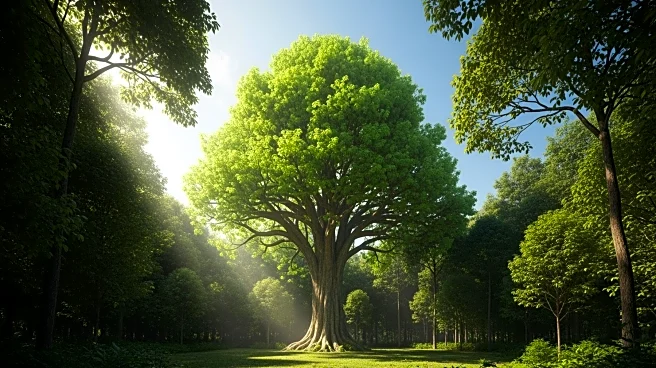What's Happening?
Prince William has initiated a new conservation project aimed at supporting Indigenous communities in the Amazon rainforest. This initiative, announced at the Wildlife Summit in Brazil, seeks to provide
legal assistance and emergency support to Indigenous people threatened by illegal logging activities. The project emphasizes the role of these communities as 'environmental defenders' and aims to protect their rights and territories. Prince William's approach contrasts with Prince Harry's involvement in African Parks, which faced criticism for its treatment of Indigenous people in the Democratic Republic of Congo. The initiative highlights the importance of Indigenous-led conservation efforts and aims to safeguard the Amazon's biodiversity.
Why It's Important?
The project underscores the critical role Indigenous communities play in environmental conservation, particularly in the Amazon, where deforestation rates are significantly lower in Indigenous territories. By providing legal and emergency support, Prince William's initiative aims to empower these communities to continue their stewardship of the rainforest. This approach contrasts with the controversial 'fortress conservation' model, which has been criticized for excluding Indigenous people from protected areas. The initiative could influence global conservation strategies by promoting Indigenous-led solutions and highlighting the need for inclusive environmental policies.
What's Next?
Prince William is in Brazil for the Earthshot Prize ceremony, which awards grants to innovative climate solutions. The project is expected to expand access to legal support and establish an emergency response fund for Indigenous communities. As the initiative progresses, it may inspire similar conservation efforts worldwide, emphasizing the importance of Indigenous leadership in environmental protection. The project could also prompt discussions on the ethical dimensions of conservation and the need for policies that respect Indigenous rights.
Beyond the Headlines
The initiative raises broader questions about the ethical implications of conservation strategies that exclude Indigenous communities. It challenges the traditional 'fortress conservation' model and advocates for a more inclusive approach that recognizes Indigenous people as partners in environmental protection. This shift could lead to long-term changes in conservation policies, promoting sustainable practices that respect Indigenous rights and knowledge.










